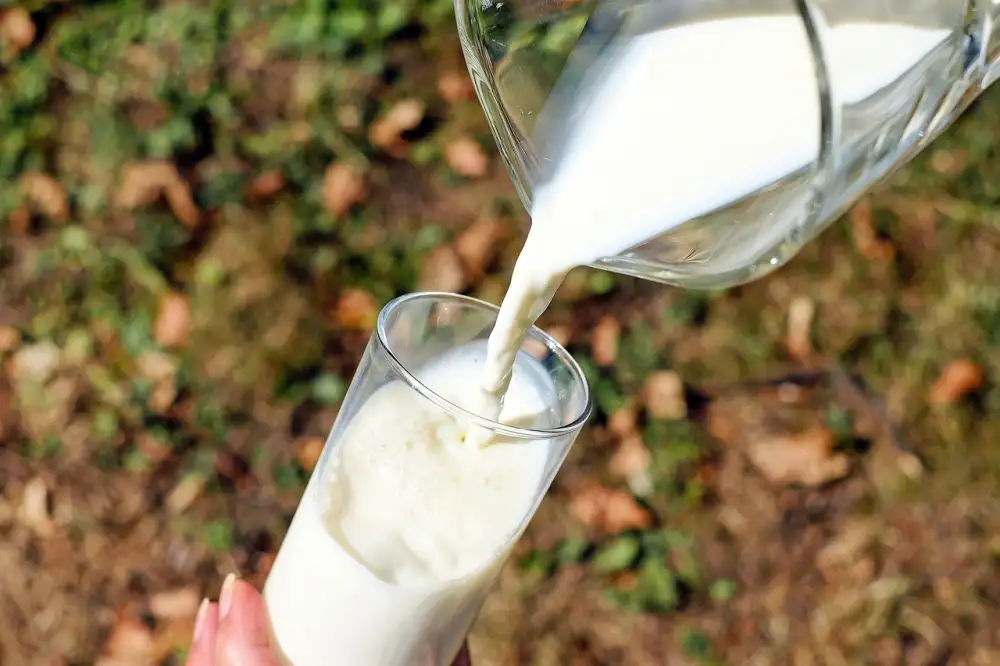Unveiling the Shelf Life Secrets: Does Almond Milk Go Bad? Your Guide to Health and Freshness

Almond milk has gained popularity as a dairy-free alternative, offering a creamy and nutty flavor that appeals to many. But like any perishable product, it is important to understand its shelf life to ensure freshness and safety. In this article, we will delve into the factors that affect the expiration date of almond milk, how to identify signs of spoilage, proper storage techniques, and the potential health risks associated with consuming spoiled almond milk. By following these guidelines, you can enjoy the delightful taste of fresh almond milk while safeguarding your well-being.
Understanding the Expiration Date: How Long Does Almond Milk Last?
Almond milk, like any other perishable food item, has a limited shelf life. The expiration date on the packaging indicates the estimated time frame within which the almond milk is expected to remain fresh and safe for consumption. Typically, unopened almond milk can last up to a week past its printed expiration date if stored properly in the refrigerator. However, it is important to note that this is just an estimate and the quality of the almond milk may deteriorate over time. It is always recommended to check for signs of spoilage before consuming.
Signs of Spoilage: How to Tell If Your Almond Milk Has Gone Bad
Almond milk, like any other dairy alternative, can spoil if not stored properly or past its expiration date. To ensure you're consuming fresh and safe almond milk, it's essential to be able to identify signs of spoilage.
The first indicator is a change in smell. Fresh almond milk has a mild, slightly nutty aroma. If you detect a sour or unpleasant odor, it's likely that the milk has gone bad.
Another sign to look out for is the appearance of clumps or curdling. Fresh almond milk should have a smooth consistency throughout. If you notice lumps or separation, it's a clear indication that the milk has spoiled and should not be consumed.
Taste is also an important factor in determining spoilage. While almond milk naturally has a slightly sweet taste, spoiled almond milk may taste sour or bitter. If the flavor seems off or unpleasant, it's best to discard the product.
Lastly, check for any mold growth on the surface of the almond milk. Mold can develop when the container is improperly sealed or when the product has been contaminated. Any presence of mold indicates spoilage and should be avoided.
Remember that these signs are not exclusive to almond milk alone but apply to all types of plant-based milks as well. Always trust your senses and use caution when consuming any food product that appears spoiled or smells off-putting.
Proper Storage: Tips to Extend the Shelf Life of Almond Milk
Proper storage is essential to extend the shelf life of almond milk and ensure its freshness. Here are some tips to help you maximize the lifespan of your almond milk:
1. Refrigerate promptly: Almond milk should be refrigerated as soon as it is opened or purchased. The cold temperature slows down the growth of bacteria, preserving its quality for a longer time.
2. Keep it sealed: Always make sure to tightly seal the container after each use. This prevents air and contaminants from entering, which can lead to spoilage.
3. Store in the coldest part of the fridge: Place your almond milk in the coldest section of your refrigerator, such as the back or bottom shelf. Avoid storing it on the door, as this area experiences more temperature fluctuations.
4. Avoid cross-contamination: To prevent any potential contamination, store almond milk away from raw meats, seafood, and other strong-smelling foods that may transfer odors.
5. Check for signs of spoilage before consuming: Before using almond milk, give it a good sniff and check for any unusual texture or appearance. If you notice any off-putting smells or changes in consistency like clumping or separation, discard it immediately.
By following these storage tips, you can extend the shelf life of your almond milk and enjoy its freshness for a longer period.
Health Risks: Consuming Spoiled Almond Milk
Consuming spoiled almond milk can pose health risks. When almond milk goes bad, it can develop a sour smell and taste. Consuming spoiled almond milk may lead to food poisoning symptoms such as nausea, vomiting, diarrhea, and stomach cramps. Additionally, consuming spoiled almond milk that has been contaminated with harmful bacteria can cause more severe illnesses. It is important to always check the expiration date and signs of spoilage before consuming almond milk to ensure your safety and well-being.
In conclusion, ensuring the freshness and safety of your almond milk is essential for a delightful and healthy experience. By understanding the expiration date and recognizing signs of spoilage, you can avoid consuming spoiled almond milk. Proper storage techniques, such as refrigeration and sealing the container tightly, will help extend its shelf life. Remember that consuming spoiled almond milk can pose health risks, so always check for any changes in smell, texture, or taste before consuming it. With these tips in mind, you can savor every sip of fresh and safe almond milk.
Published: 25. 01. 2024
Category: Health



